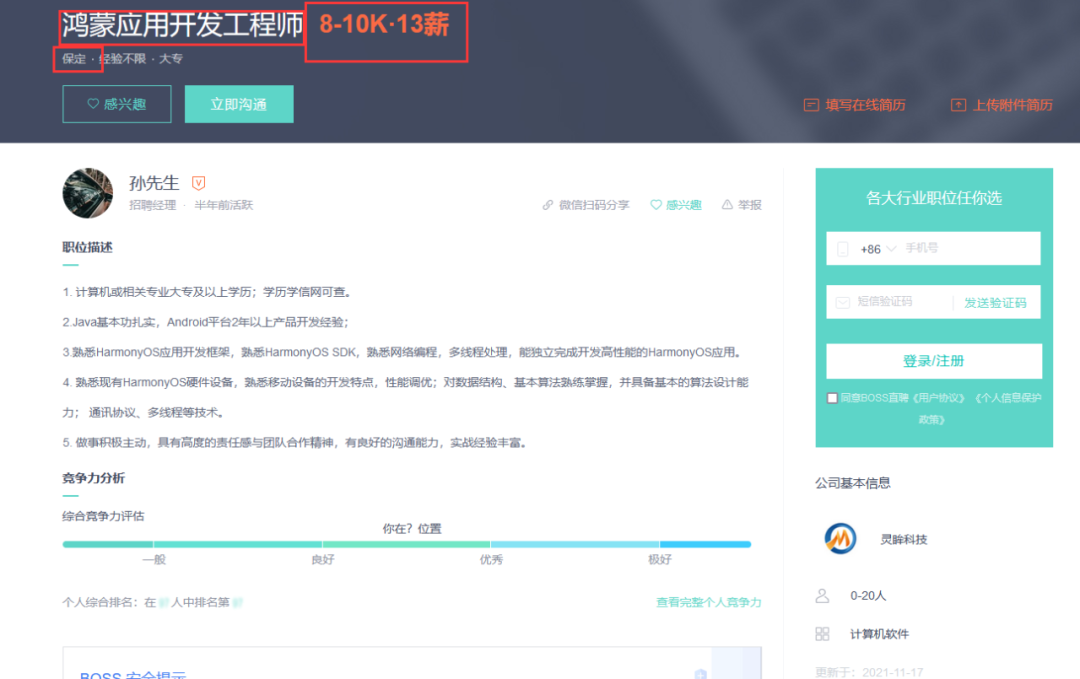After coming out of Hongmeng, many Android engineers began to worry, fearing that it would affect their work. Lao Wang thinks this is a bit unfounded. Instead of worrying about whether it will affect Android development engineers, it is better to see if he can seize the opportunity of Hongmeng.
If you really think he can do it, if you really want to know how big of an impact? Then Lao Wang will analyze and analyze it with you.

The release of the Hongmeng system will definitely have an impact on Android engineers, because after all, they are two different operating systems, but how big is the impact? I think this should be considered from a different dimension.
First, the development tools are different, one is called DevEco Studio, the other is called Android Studio, but both are developed based on IntelliJIDEA.
According to the DevEco Studio I installed myself, the operation is not much different from Android Studio.

Second, Hongmeng is compatible with Android apps. Since it is compatible, then if we don't need to use the new features of Hongmeng itself, we can completely develop Android without changing the IDE.![]()
Third, what is the difference between Hongmeng and Android development interfaces? The bigger the difference, the higher the switching cost. Here I am mainly talking about the application layer development. We basically don't touch the Kernel part, so it is meaningless to discuss whether it is a shell or not.
According to a Hello Wrold written in Java on the DevEco Studio used in the past few days, the change is not very big. For example, Activity has become Ability, and the concepts of Intent are still there.
Fourth, Hongmeng cannot subvert the entire Android market now. Here, it refers more to Hongmeng mobile phones, because this is the target of Android phones. When a new thing comes out, it is impossible for you to eat the original market occupier all at once.

In fact, according to Peter Thiel's "From 0-1", if you don't have ten times the performance or functional excellence, it is almost impossible for a newcomer to beat a market with a first-mover advantage in a red ocean market. occupier.
Instead of fighting hard in the stock market, it is better to go to the new battlefield to seize the opportunity. After all, the rapid development of electronic technology and network technology is driving the continuous change of operating systems.
Where is Huawei's next "battlefield"?
Internet of Things! This concept that was put forward at the beginning of the new century is exactly what people predict about the next era.
Through the use of radio frequency technology and other methods, communication and information sharing without human intervention can be achieved between items, that is, allowing various items to "talk and communicate" autonomously, so as to realize the interconnection of all things, which is the Internet of Things.![]()
At present, the development of the Internet of Things has become a national strategy in some major countries such as China and the United States. Creating an operating system that connects all things is precisely Huawei's positioning of Hongmeng when it began to develop the operating system in 2016.
Not the mobile Internet, but the Internet of Things; not replacing Android, but replacing Android; not just mobile phones, but covering all kinds of terminal devices.
This is a brand new track, and Huawei is one of the first players to enter.
The successful launch of an operating system that locks the future market is just a stepping stone for Huawei to open up a new situation. Whether it can take the top spot of the operating system in the era of the Internet of Everything depends on the market share. Industry consensus: A system can only continue to develop if it has a market share of more than 16%.

Huawei has also set a goal. By the end of 2021, the number of devices equipped with the Hongmeng operating system will reach 300 million, of which more than 200 million are Huawei devices, and the number of various terminal devices for third-party partners will exceed 100 million.
For a new player, this number is already considerable.
Employment opportunities brought by Hongmeng
With the increasing popularity of HarmonyOS, HarmonyOS has been placed in the first position of Huawei certification, which shows its importance.
The field of HarmonyOS is also divided into 3 levels from low to high: HCIA, HCIP, HCIE, representing engineers, senior engineers, and experts respectively. Through HCIA, it means that you have proficient development experience and a solid theoretical foundation; through HCIP, it means that you have mastered the ability to develop complex scenarios; through HCIE, it means that you are already an expert in full-scenario solutions and have mastered planning, design and systems. The ability to tune.
There are still relatively few real Hongmeng engineers in the market. Although there are more than 5.2 million Hongmeng developers in the world, these numbers are definitely not enough for ecological construction. Such a situation has caused "things are vaguely expensive", and the salary of the post must exceed the first-line level, generally 15k-30k+.


——————
Original: Lao Wang丨[Public Account: Hongmeng Developer Laowang] Huawei Certified Instructor / Tencent Certified Instructor / Hongmeng Development Pioneer